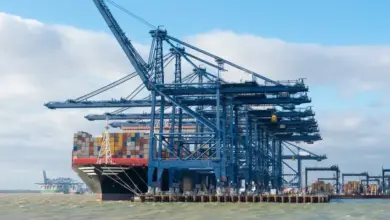
Rights group Amnesty International is calling for a halt to US arms shipments to Egypt’s security forces “until there is certainty that tear gas and other munitions, weaponry or other equipment aren’t linked to bloodshed on Egyptian streets,” it said in a statement released on Wednesday.
In the statement, it said it has obtained data showing that the US “has repeatedly transferred ammunition to Egypt despite security forces’ violent crackdown on protesters.”
Both the army and riot police have used tear gas, shotgun pellets and even live ammunition against protesters since January.
Most recently last month, over 40 people were killed during five days of clashes between security forces and protesters in downtown Cairo. Dozens of protesters were the victims of eye injuries. A preliminary investigation by the Egyptian Initiative for Personal Rights (EIPR), an NGO, revealed the misuse of force by security forces during the events.
EIPR said in a statement issued on 26 November that “security forces deliberately fired birdshot pellets and rubber bullets in the direction of demonstrators’ bodies. This use of force was intended to injure demonstrators rather than to disperse them, which led to several of them losing the use of their eyes.”
Tear gas was also used in large quantities during the clashes. On numerous occasions, riot police fired multiple rounds of the gas, sometimes as many as six or seven canisters in one minute. Protesters were ferried away from the front line to field hospitals in Tahrir Square throughout the clashes, and suspicions emerged that security forces used a particularly potent form of CS gas, or even CR gas, although such allegations have yet to be proven.
However, doctors in Tahrir Square field hospitals told Al-Masry Al-Youm that the symptoms of some tear gas victims, such as difficulty in breathing, frothing at the mouth and trembling, may simply have been caused by the sheer quantity of gas to which they were exposed, particularly in the confined space of Mustafa Mahmoud Street, where much of the fighting took place.
British newspaper The Independent reported last week that teargas canisters made by the British firm Chemring Group PLC had been found during the clashes. A Chemring spokesman told the Independent that the last time the company sold gas to Egypt was in 1998, and that canisters have a shelf-life of three to five years. The revelation reinforces suspicions that Egyptian security forces use expired gas on protesters.
Amnesty International has information about three recent shipments of arms to Egypt by Combined Systems, a US company, since January.
“Egypt’s security forces, including the riot police, must be reformed and trained to respect UN standards on use of force and firearms,” Amnesty said. “Without fundamental change in the behavior and accountability of the security forces, it is irresponsible for foreign countries to provide arms and other equipment to forces that are most likely to misuse them.”




